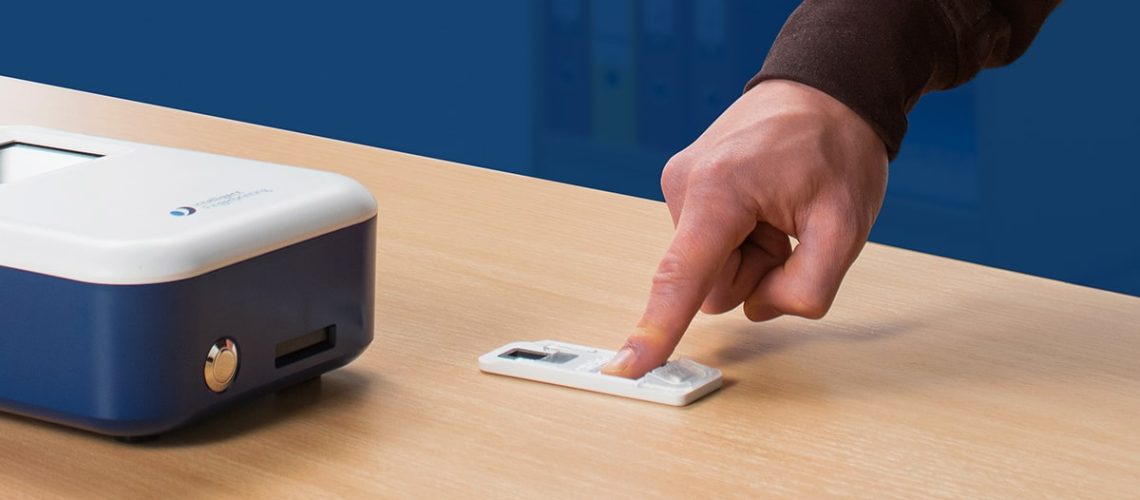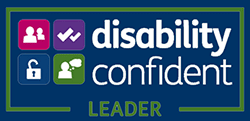Drug misuse in the workplace costs businesses billions of pounds each year. Not only can it lead to a loss of performance and increased sick days, but it could also put the health and safety of others at risk. As a problem experienced across the transportation and construction sectors, employers must take action to prevent serious incidents from occurring. They cannot afford to ignore the devastating impact drug use could have on their employees, their business and their reputation. Implementing stringent workplace alcohol and drug policies is a good first step, but regular and unplanned testing goes a long way to preventing workers from being under the influence at work.
In this article, we will delve into drug misuse in the workplace, its prevalence and how employers within the transportation and construction sectors can combat it with regular non-invasive drug testing.
Drug Misuse in the UK Workforce
When it comes to health and safety in the workplace, drug misuse is a significant concern. National statistics from the UK government found that the number of adults entering treatment for substance misuse from 2022 to 2023 was in excess of 130,000. Nearly half of these adults (48%) were there for misuse of opiates.
The use of drugs in the workplace can be a serious issue and one that should not be tolerated. Not only can drug use impact the long-term health of the user, but it can also make those under the influence a hazard to themselves and other workers.
Research from UKAT (UK Addiction Treatment) revealed the hidden costs of substance abuse in the workplace, including:
- Drug abuse costs the UK £15 Billion per year
- 65.7% of adult drug users are employed
- 40% of industrial accidents are linked to substance abuse
- Opiates, marijuana and cocaine are the most common drugs found in workplace testing
- 3 million workers will go to work under the influence each year
Identifying Potential Cases of Drug Misuse in the Workplace
While drug testing in the workplace must be free from any bias, there are some warning signs to look out for that could indicate drug misuse. These include:
- Unexplained changes in behaviour such as mood swings, erratic performance or changes in employee relationships.
- Frequent unexplained absences from work can be a red flag, especially if they appear to follow a pattern.
- Work performance deteriorates, such as a decrease in productivity or quality of work. This may include more errors being made.
- Physical signs of drug use may include bloodshot eyes, unsteady on their feet, slurred speech or neglect of personal appearance.
- Sudden withdrawal from colleagues, unusually quiet or sudden change in workplace friendships.
- Increased defensiveness to feedback, particularly about their behaviour or performance, can be an attempt to conceal an underlying issue.
Remember, these signs are not definitive proof of drug misuse, and you should approach any concerns with sensitivity and confidentiality. If there is suspicion, it’s advisable to follow established workplace protocols for addressing potential drug misuse cases.
The Vital Use of Regular and Unplanned Drug Testing
Across the transportation and construction sectors, drug misuse in the workplace is becoming an increasing concern. Regularly conducting unplanned drug testing is one of the most effective ways to combat workers being under the influence at work. It can help identify those who are so you can take appropriate action to mitigate risks.
As industries that use machinery, electrical equipment or ladders and where workers drive or operate heavy lifting equipment, it is understandable why concerns are high across the transportation and construction sectors.
Adopting drug testing and screening as part of your alcohol and drug policy could prevent disastrous outcomes. Screening in safety-critical industries is imperative to help prevent serious incidents that could affect the employee, other workers, members of the public or the environment.
It is crucial that employers bear in mind that to perform regular drug testing:
- You must have the full consent of employees for practical and legal reasons
- Drug testing should be included as part of your alcohol and drug policy and your overall health and safety policy
- Drug testing should be carried out accurately with no risks of contamination
- Employees who decline to consent to a test could face disciplinary action
Why Fingerprint Drug Testing is Proving Successful
Fingerprint drug testing has emerged as a highly effective and non-invasive method for ensuring the safety and compliance of drivers and operators in the transportation and construction industries.
This innovative approach, offered by companies like Auctus Management Group, the UK Distributors for Intelligent Fingerprinting, offers several key benefits over traditional urine or saliva-based drug tests.
Regarding fingerprint drug testing, Management Group CEO Richard Toy explains: “Our adoption of fingerprint drug testing technology underscores Auctus Management Group’s commitment to innovative, respectful and efficient safety practices in the workplace. We can support clients by managing the entire process on their behalf to ensure compliance.”
The Advantages for Transportation Companies
Transportation companies, encompassing a wide array of services such as haulage, trams, buses, coaches, taxis, and other vehicles, increasingly recognise the substantial benefits of integrating fingerprint drug testing into their safety protocols. These include:
1. Efficiency in Testing Processes
Fingerprint drug testing streamlines drug testing processes for transportation companies operating in the UK. A rapid sample collection time of just seconds significantly reduces the downtime associated with testing procedures. This efficiency is crucial for pre-employment screening, ensuring a swift and smooth onboarding process for new hires.
2. Versatility in Testing Scenarios
Whether for pre-employment screening, random testing or post-accident investigations, fingerprint drug testing offers unparalleled versatility. Transportation companies can seamlessly incorporate this method into various scenarios to help them adapt to the industry’s dynamic nature. This flexibility ensures that safety measures remain robust and responsive to evolving challenges.
3. Timely Detection of Substance Use
The fingerprint drug test is adept at detecting recent substance use, including cocaine, opiates, amphetamines and cannabis. This capability is invaluable in maintaining a vigilant approach to ensuring that drivers and operators remain fit for duty, minimising the risk of accidents caused by impaired judgement due to substance use.
4. Swift Results for Informed Decision-Making
Time is of the essence in the UK transportation industry. Fingerprint drug testing provides results in minutes, enabling quick and informed decision-making. This rapid turnaround is especially critical in post-accident investigations, allowing companies to take prompt action based on accurate and timely information.
The Advantages for Construction Companies
In the construction industry, safety standards are paramount. Through the integration of fingerprint drug testing, transformative changes can be implemented to help secure and hazard-free work environments.
1. Ensuring Safety in High-Risk Environments
Heavy machinery such as cranes and excavators demand rigorous safety standards in the UK construction sector. Fingerprint drug testing provides a convenient and rapid solution, enabling companies to maintain a heightened focus on safety. This method ensures that operators remain free from impairment, minimising the risk of accidents and injuries on construction sites.
2. Privacy and Dignity
Respecting employee privacy and dignity is a cornerstone of effective drug testing programmes in the UK. Fingerprint drug testing, being non-invasive, aligns seamlessly with these principles. Employees can undergo testing without feeling intrusive, fostering a positive and respectful workplace culture.
3. Adherence to Safety Protocols
In an era where adherence to safety protocols is paramount, fingerprint drug testing offers a solution that minimises physical contact. This non-invasive approach ensures that testing can continue without compromising the health and safety of employees, aligning with the evolving norms of a post-pandemic work environment.
4. Comprehensive Testing for Varied Needs
From pre-employment screens to random tests and post-incident investigations, fingerprint drug testing supports the diverse testing needs of the UK construction industry. This comprehensive approach ensures that safety measures are robust and adaptable to the dynamic challenges inherent in the construction sector.
The Economic Impact on Transportation and Construction Companies
Beyond the immediate safety benefits, integrating fingerprint drug testing into the transportation and construction sectors in the UK carries substantial economic benefits. These include:
Reduced Downtime and Increased Productivity
The efficiency of fingerprint drug testing directly translates to reduced downtime for transportation and construction companies. Swift testing processes mean less time away from operational duties for employees, contributing to increased productivity and operational efficiency.
Cost-Effective Compliance
Fingerprint drug testing, with its rapid results and non-invasive nature, offers a cost-effective solution for compliance with drug testing regulations in the UK. Companies can avoid the costs associated with prolonged testing procedures while ensuring adherence to safety standards.
Improved Reputation and Client Confidence
Adopting cutting-edge safety measures, such as fingerprint drug testing, enhances the reputation of transportation and construction companies in the eyes of clients and stakeholders. Demonstrating a commitment to safety and compliance can instil confidence in clients, potentially leading to increased business opportunities.
Ensuring Legal and Regulatory Compliance
The use of fingerprint drug testing in the fabric of the UK transportation and construction sectors brings a crucial need for a comprehensive understanding of regulatory compliance and the potential legal ramifications. While the benefits of this innovative testing method are evident, navigating the legal landscape is paramount to ensuring that companies operate within the boundaries of the law and maintain a solid ethical foundation.
Alignment with UK Drug Testing Regulations
The foremost consideration for companies adopting fingerprint drug testing is aligning with UK drug testing regulations. Compliance with regulations set forth by bodies such as the Health and Safety Executive (HSE) is essential.
Regular audits and updates to policies should be conducted to ensure that the testing procedures adhere to the latest regulatory standards. Staying abreast of changes in regulations guarantees that the implementation of fingerprint drug testing remains legally sound and effective.
Employee Rights and Consent
Respecting the rights of employees is paramount in any workplace practice, particularly when it comes to drug testing. Companies must ensure that their testing policies are transparent, clearly communicated, and in accordance with UK employment laws.
Obtaining informed consent from employees before conducting fingerprint drug tests is a legal obligation and a fundamental ethical requirement. Employees should be well-informed about the testing’s purpose, method and potential implications, allowing them to make an informed decision.
Data Protection and Privacy Laws
The collection and processing of biometric data, including fingerprints, introduce a layer of complexity concerning data protection and privacy laws.
In the UK, companies must comply with the General Data Protection Regulation (GDPR), which sets strict standards for handling personal data. Implementing robust data protection measures, obtaining explicit consent for biometric data usage, and ensuring secure storage and transmission mechanisms are critical steps in compliance with data protection laws.
Anti-Discrimination Legislation
Fingerprint drug testing should be implemented without any form of discrimination. Companies must apply the testing process consistently and fairly across all employees.
There should be no bias based on gender, age, race, or other protected characteristics. Any deviation from this principle could result in legal challenges under anti-discrimination legislation, underscoring the importance of fair and unbiased testing practices.
Handling Non-Negative Test Results
A crucial aspect of legal compliance in fingerprint drug testing is the proper handling of non-negative test results. Companies should have clear protocols to maintain confidentiality and privacy while addressing the implications of a non-negative test.
Employees who test non-negative should be provided with the opportunity to explain or dispute the results. Appropriate procedures for disciplinary actions or rehabilitation should be followed per employment laws.
Regular Review of Policies
The regulatory landscape is dynamic, and employment laws are subject to change. Regularly reviewing and adapting fingerprint drug testing policies are essential to ensure ongoing compliance.
Companies should establish a framework for periodic reviews, considering any legal updates or changes in industry regulations. This proactive approach safeguards legal standing and reflects a commitment to staying ahead of evolving compliance requirements.
Key Advantages of Intelligent Fingerprint Drug Testing
The user-friendly nature and portability of the Intelligent Fingerprinting Drug Screening System make it exceptionally versatile and a valuable choice for employers aiming to introduce genuinely impromptu and random workplace testing.
With the system delivering a result, be it negative or positive, for each drug in the test within a mere 10 minutes, testers promptly receive alerts regarding potential employee issues. This enables them to take immediate action in line with their organisation’s policy on drug misuse.
The key advantages of this workplace drug screening solution include:
- Accurate Detection and Simple Analysis: The technology delivers precise results and identifies an extensive array of drug groups. Its simple administration enables immediate analysis using the portable reader, providing a thorough understanding of patterns related to drug use.
- Non-invasive and Hygienic Approach: Fingerprint drug testing offers a less invasive and more hygienic alternative compared to traditional methods, catering to the preferences of today’s health-conscious environment.
- Rapid Results for Timely Decision-Making: The system’s swift delivery of results is crucial, especially in post-accident scenarios, facilitating prompt decision-making and actions in response to the outcomes.
- User-Friendly Deployment: The portability and user-friendly deployment of fingerprint drug testing make it an attractive choice for companies managing extensive fleets or numerous job sites, streamlining the testing process.
- Holistic Testing Capability: With the ability to screen multiple drug groups simultaneously, fingerprint drug testing expands the breadth of drug testing policies, offering a more comprehensive approach to substance screening.
- Compliance with Health and Safety Regulations: Fingerprint drug testing is instrumental in aiding companies to fulfil their health, safety and duty of care obligations. This is particularly relevant under regulations like the Health and Safety at Work Act 1974, showcasing its commitment to supporting overall workplace safety.
Summary
In summary, fingerprint drug testing in the UK transportation and construction industries redefines how companies approach drug testing for drivers and operators. This method’s unparalleled efficiency, accuracy and non-invasive nature contribute to safer workplaces, reduced downtime and enhanced compliance with evolving safety standards.
As companies in these sectors embrace this transformative technology, the fingerprint drug testing landscape is poised to shape the future of safety, ensuring secure and productive work environments.
Beyond safety, the economic and legal implications further underscore the significance of this revolutionary approach, solidifying its role as a cornerstone in the ongoing evolution of workplace safety.
How Auctus Management Group Can Help
As the UK Distributors for Intelligent Fingerprinting, Auctus Management Group can help a variety of sectors, including transportation and construction, to deliver a non-invasive, hygienic solution for drug screening in the workplace.
If you would like to discuss how we can help your company with a fully managed fingerprint drug testing service, please get in touch to chat through your requirements. Contact our Delivery Manager, Leanda Waring on 0330 113 0004 or email inductions@auctusmg.co.uk



